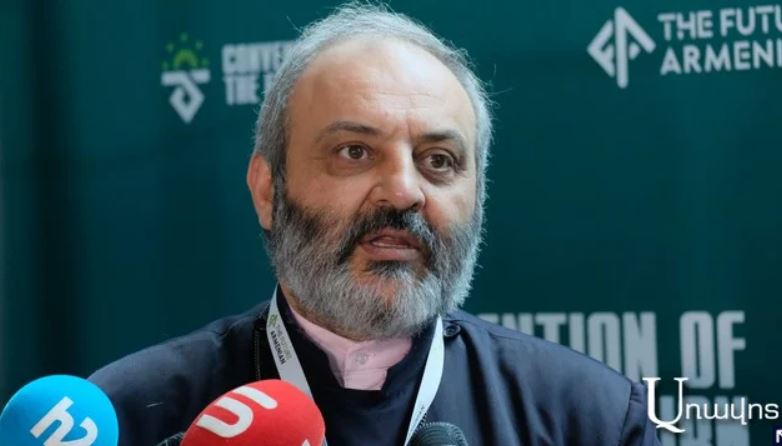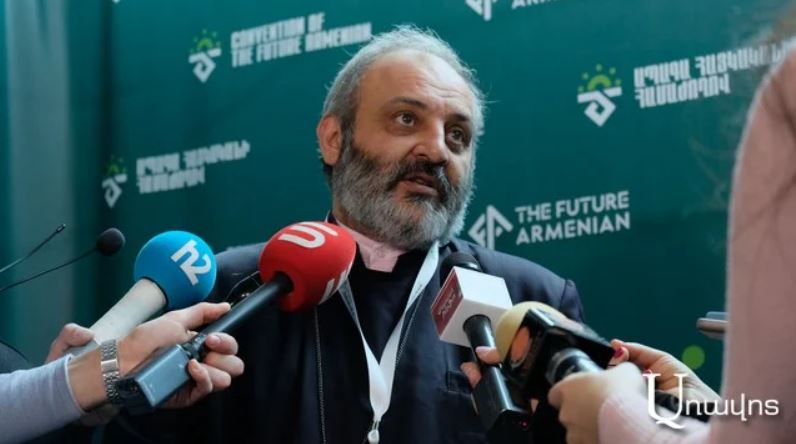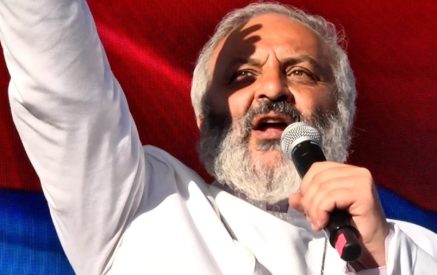Within the framework of the first pan-Armenian forum, “Future Armenian,” Archbishop Bagrat Galstanyan, Primate of Tavush Diocese, speaking about security, Artsakh, and the involvement of the diaspora, remarked: how can one have such great potential and not use it. Aravot.am asked, the topic of discussion at this conference is that for many years we have not set goals for ourselves in any field: security, education, others; now do you have selected goals, targets, what are they and how to achieve this?
He answered. “All states and societies fail or succeed from the existence or non-existence of a goal. We need to create a strong State with a national profile. Values are the foundation of everything. For example, in the 13th century, when we did not have a state, Armenian life continued for 300 years with one person, monastery, and school. I am talking about Mkhitar Gosh. We must understand how our fathers acted, with what tools, and on what basis. When we talk about a good state and do not define what that good state is, it is a failure. That means, at best, making much money, and that’s it, no responsibility, no leadership.”
Read also
He says none of us wants to see our state as a poor beggar with a justice deficit. Still, we should be honest, spiritually exposing ourselves, recording the current problem and challenges, and bold in our visions. “We are in the midst of problems, and we know where these problems come from and how they come. We have the opportunity to take responsibility and build a new life.”
Speaking about unity, Reverend Bagrat said: “We live in a time when a man does not trust man, but man needs man the most. It is a biblical reality that when children rule, the small become disrespectful to the elders, the unworthy to the worthy, and the whole society is mixed up. This is the word of the Prophet Isaiah.
When I bring it to our field, it is the climate of simple mistrust we have today. No one has a say, and nothing to do, because everyone is labeled by something hurt. It doesn’t matter who that person is; listening has become a problem, while listening is a great mission. There must be unity around the idea.
No matter how much I love and respect my compatriot, I cannot travel with someone who talks, for example, about surrender, replacing 120,000 people with 3 million, and talks about this or that number of borders of the homeland. How can I travel? That’s the ideological break. Whether I will humanly love and respect or not, ideologically, I cannot be in that trench where there is no trench. I am not speaking against anyone. Now this road, who will enter that road and how they will enter, it is not our problem to make a difference; it is a question for them to decide.”
Hripsime JEBEJYAN























































